Museo del Design del Friuli Venezia Giulia – Associazione di Promozione Sociale
P. IVA e CF 02863400301 – info@mudefri.it
“As of me, the rocking egg chair made of curved wood is still the best ever designed: it is the perfect expression of a democracy in which Beauty was wanted and searched in everyone’s home.”
Giovanni Renzi, architect and historian
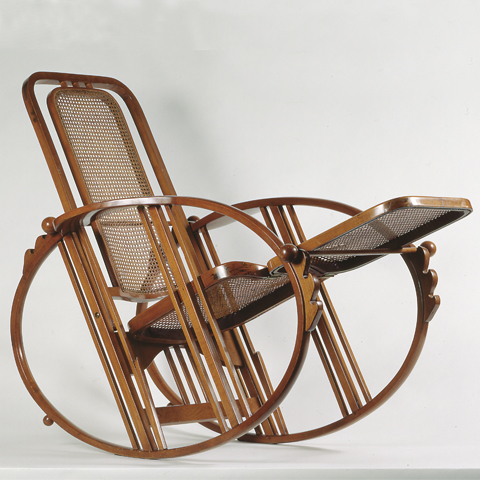
The rocking chair n. 267 is known as Sitzmaschine. Its good design and high-quality craftsmanship are indeed associated with its great usability due to the perfect fusion of its decorative and structural elements.
The Sitzmaschine, that is, the "machine for sitting".
Thanks to its adjustable back, the center of gravity can easily shift and be rearranged according to user’s needs. Once balance has been reached, the chair swings at any partial movement of the user. Even a small movement of the neck, for example, is perceived by the structure and causes a new shift for balance. Sizing is the result of an accurate study and a particular mentality.
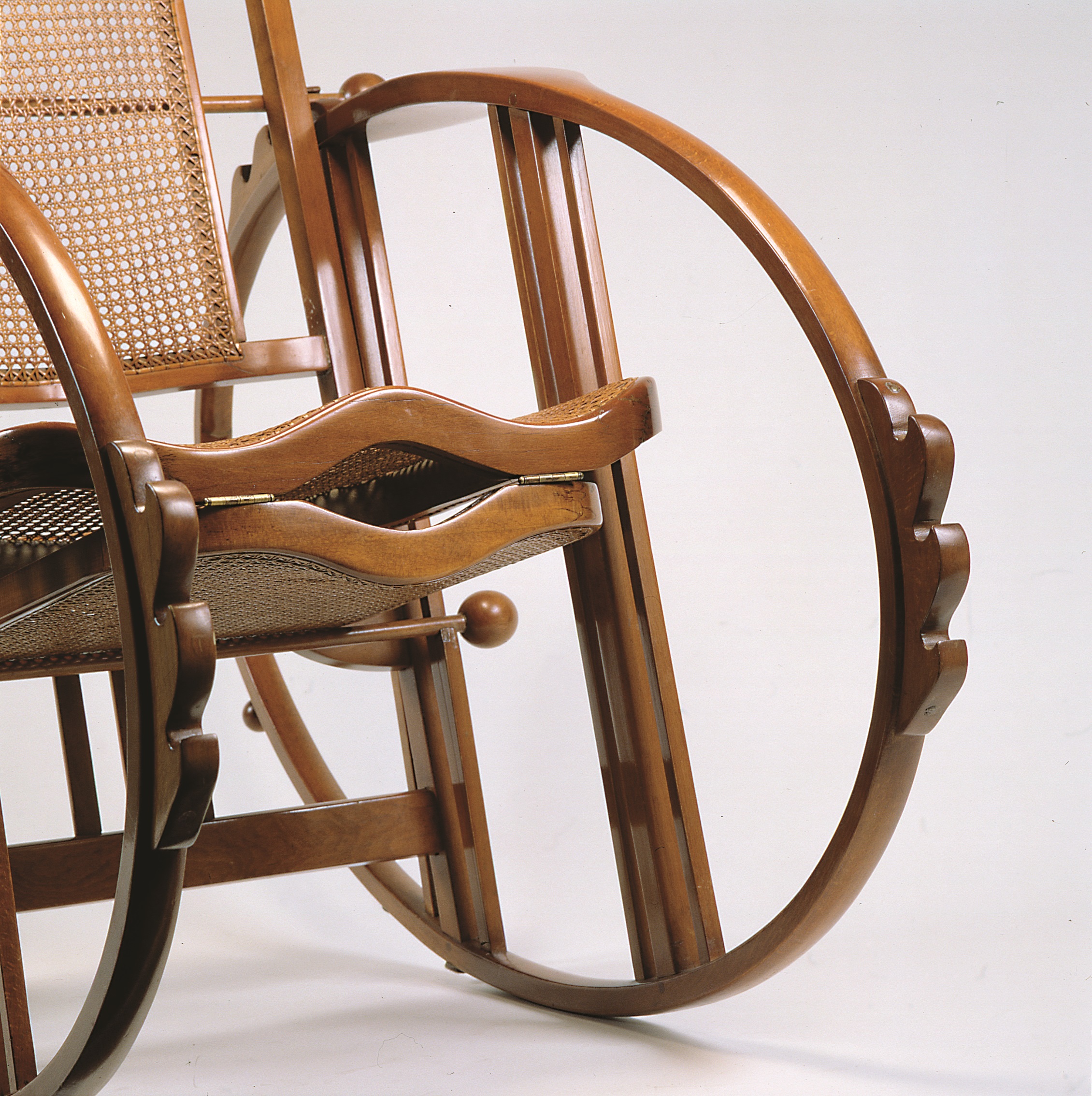
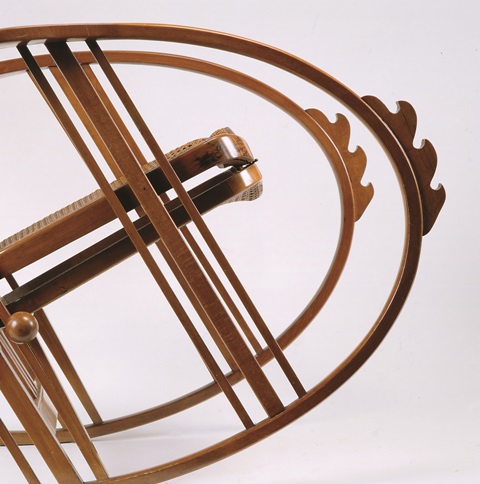
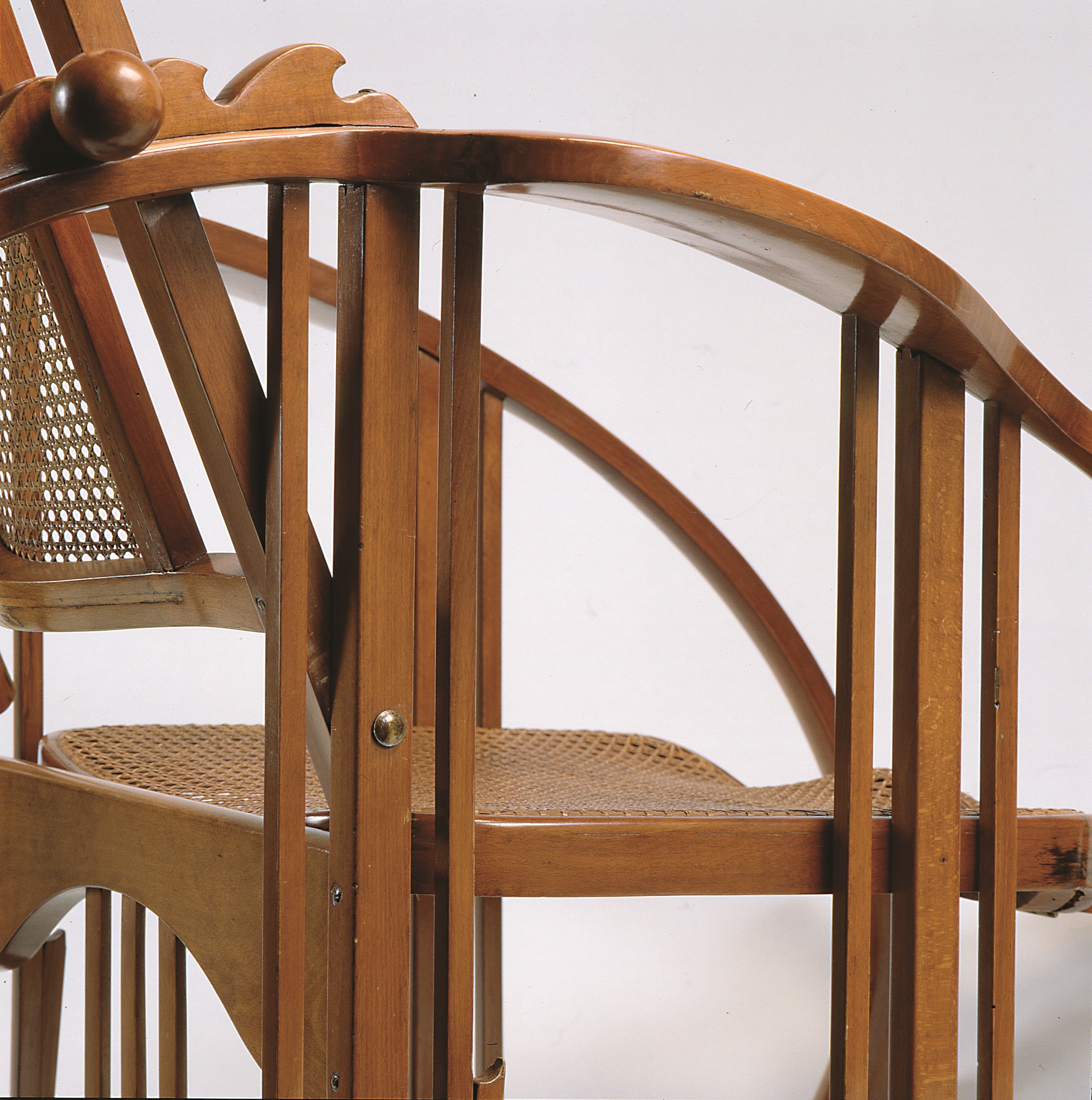
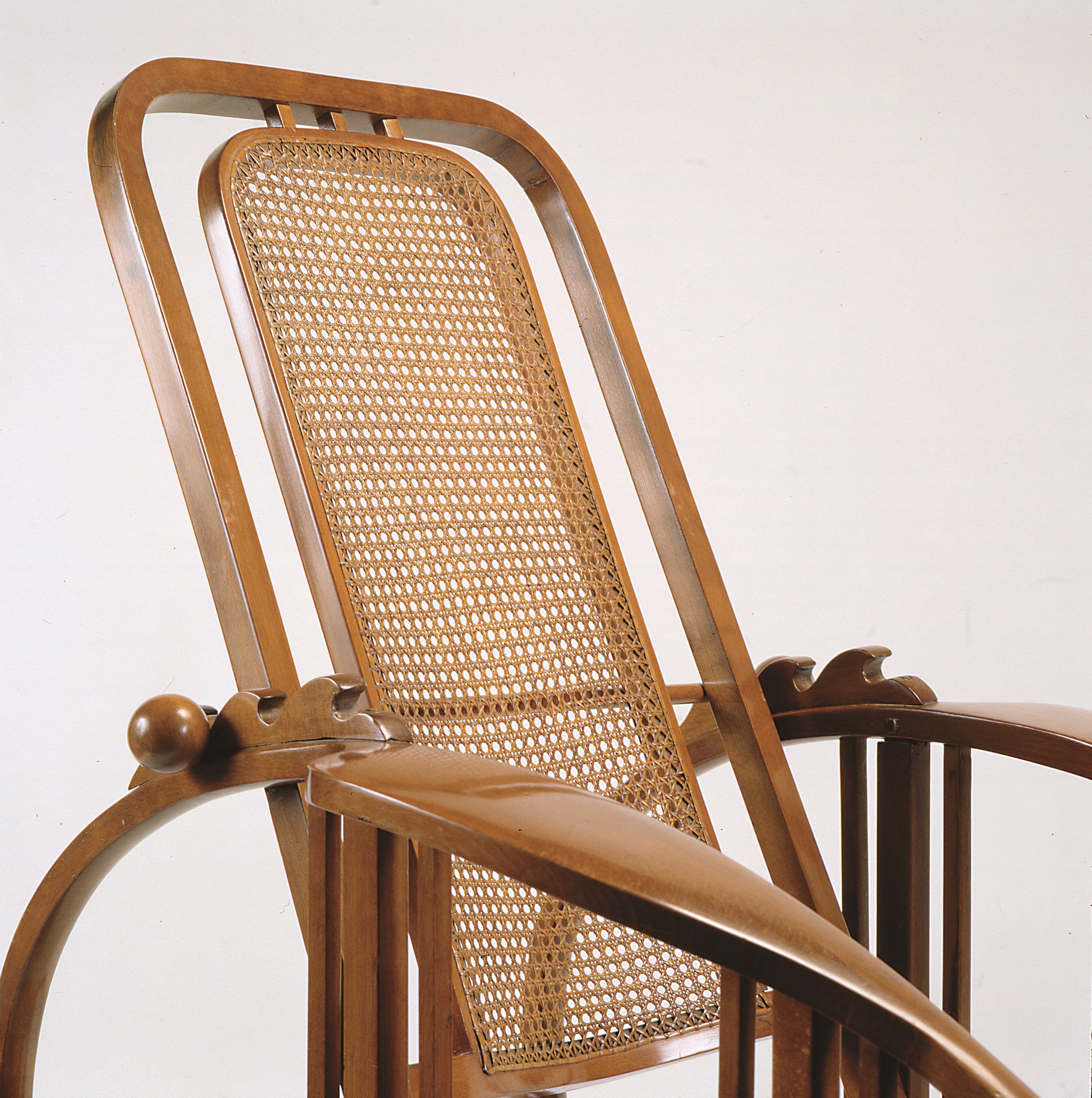
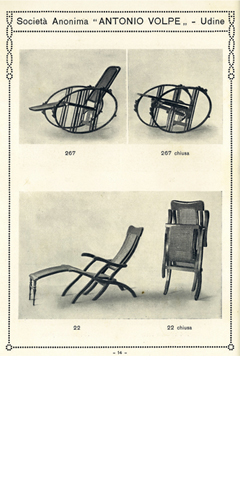
The sliding shapes have a rectangular but slightly rounded section on their long side.
In this part of the chair, the Società Volpe put into practice all the knowledge accumulated through patenting and manufacturing bicycle wheels and two-wheeled carts (“sulkies”) for harness racing.
The armrests , although applied alongside the sliding shapes, seem a whole united piece: they look harmonious and aerodynamic. The armrests produced by Thonet or Kohn for their armchairs, swingers, and chaise longues were completely different.
The rockers (the curved bands and sliding shapes that allow one’s to rock back and forth on the chair) is a perfect ellipse with a very marked eccentricity because of its double symmetry. If it were an oval (the rocker is also called Egg-Rockingchair) it would have symmetry on one axis only, while in this case it is an ellipse having symmetry on the two axes.
There are various reminders of Hoffmann’s Sitzmaschine in Max Fabiani’s design,
such as the limit knobs of the slides; the loops that form the armrests and legs,
looking nearly a deformed ellipse; the back leaning on it and kept in position
by a stick with two knobs.
The rocking chair n. 267 made by the Società Anonima Antonio Volpe was sold in the Twenties in three different designs: the basic model, the one with adjustable back and the one with adjustable back and footrest. The last one is probably the most complete model it has been manufactured: with its three backrest positions and its four footrest positions, is the final and best synthesis of all.
Only evaluating all these details it is possible a comparison with the original Sitzmachine.